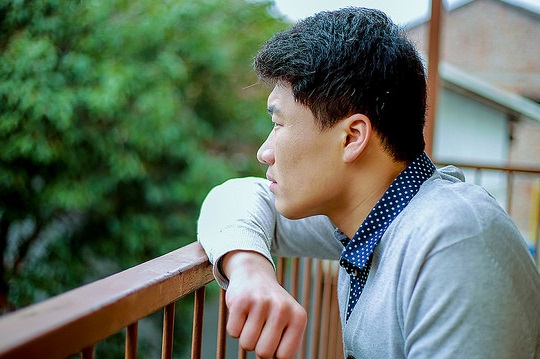How I Practice What I Preach: A Therapist’s Journey
By: Rochelle Perper, Ph.D. | October 11, 2019

A common misconception is that professional Psychologists “have it all figured out.” As a professional Psychologist, I can say as our little known secret is that we don’t have it all figured out. At least, not always.
I may have the training and education, but I am also human. I learned partly from my professional education and partly from personal experience that the way to connect comes by having the courage to be vulnerable. It’s not always easy to be honest, acknowledge our shortcomings, and reach out during tough times.
To err is human
We aren’t alone in our imperfections — an important fact to know. Our flaws are the very things that unite us. They are our universal commonalities. And yet, we feel alone. Why is that?
We live in an “Instagram Era,” bombarded by images of beautiful people doing amazing things, having the time of their lives. We can’t help comparing ourselves to them. We feel that we fall short of those who seem to live perfect lives. The reality is that it’s just a ruse, an illusion that we create to show we are putting our best foot forward for others to see us in a good light (both literally and figuratively). Although there’s nothing wrong with wanting others to see us in a positive way, I think it does us a disservice to give the impression that there is a perfection to strive for.
My healing journey
For the past five months I have suffered from a back injury resulting in significant disruption to my lifestyle. A big part of my life and coping mechanism is to be active but the restrictions from any real form of physical activity have challenged me incredibly. I felt a myriad of difficult emotions including anger, confusion, sadness. I felt alone, desperate, and scared.
The tough part included not only the pain, the inconvenience, the stress and strain, but also feeling alone throughout the ordeal. Because I consider myself a positive person and am a professional therapist, those around me assume that my ordeal is not that big of a deal and that I can handle it…leaving me feeling worse that I am having a hard time.
The result? I feel ashamed. But, should I be feeling this way? Afterall, I am no stranger to difficult emotions and challenging life experiences. We all have our sources of pain, trauma, and loss. I know what to do…right?
Easier said than done…but doable
I do my fair share of the unhelpful things that we all do when faced with difficult circumstances. I feel bad for myself. I am critical and unkind to myself. I doubt my strength and capabilities. I think in worst-case scenarios. I show impatience, hold myself to arbitrary standards, and set unrealistic expectations. This makes me human — an understandable reaction considering the circumstances.
I think it’s important to give ourselves permission to “lean into the morass,” to embrace the emotional imbroglio, to endure the psychic mess. Giving ourselves permission to do so — rather than resisting it and pretending it’s okay when it isn’t — attenuates the intensity and shortens the life of the ordeal. Healing is not a linear process. The course of time allows us to come in and out naturally of these unhelpful attitudes.
I do have to dig deeply to find that inner confidence and knowledge that it is okay to feel crummy, irritable, and frustrated. I dig even deeper for the knowledge that it will eventually be okay, even though it’s hard to imagine how or when. The deepest dig of all is finding the security I know I have in that I am a strong, creative, resourceful, and determined person, and that I will find a way through.
Strategies that work for me
Below are ways that I use the skills and strategies in my own life that I teach to others:
1. Get creative and learn to adapt. Without my “go-to” exercising and sports, I recognize the need to find creative outlets, such as watching standup comedy on TV, listening to music, writing down my thoughts, and using guided meditations on my Calm app.
2. Move past the fear. While I wonder whether the pain will ever go away, I remind myself of my body’s incredible ability to heal and that it will take as long as it takes to do so. Instead of counting days and dwelling on my impatience, I say the following mantras to myself: Healing Happens; Be Consistent.
3. Practice gratitude. I practice gratefulness for the support around me, my flexible schedule, and the privilege of access to quality medical care. I am grateful for my heart and lungs, arms and shoulders, ankles and wrists…the healthy and strong parts of my body.
4. Embrace self-compassion. I give myself permission to cry when I feel that knot in my throat. I know it’s okay to feel what I am feeling. I am realistic about what I can accomplish during this time. I take breaks when I need them.
5. Let go of ego. My injury means I can’t look as good as before or show off my body’s capabilities. In my yoga practice, I let go of the desire to be better than my neighbor and find the pose that is right for me at this time. I praise myself for the things that others won’t even notice, such as strengthening my core, rather than relying on external praise for getting into more complex yogic postures.
6. Reach out! I ask for help when needed, such as suggesting a restaurant closer to my house or getting someone to carry my heavy items at the supermarket. Most importantly, reaching out to friends and family for support and encouragement makes a big difference.
What is the learning here?
My most helpful strategy focuses on finding what this injury is telling me. In other words, what lessons can I learn from this experience?
My natural instinct is to rage against the injury and shout “this shouldn’t be happening,” making this strategy a difficult one for me. I work very hard to embrace my current situation for what it is without judgment or expectations. It takes great strength to look for the silver lining, to embrace the ways I grow as an individual from this experience. I listen to my body more closely, slow down and take breaks, correct bad habits with my posture and form. I learn to let go of my ego.
Of course, I wish I could have learned these lessons in different, less painful and disruptive ways, but life provides learning in an array of ways. I trust that I will eventually come through on the other side a stronger person, both emotionally as well as physically.
Image: Michael Matti on flickr and reproduced under Creative Commons 2.0



